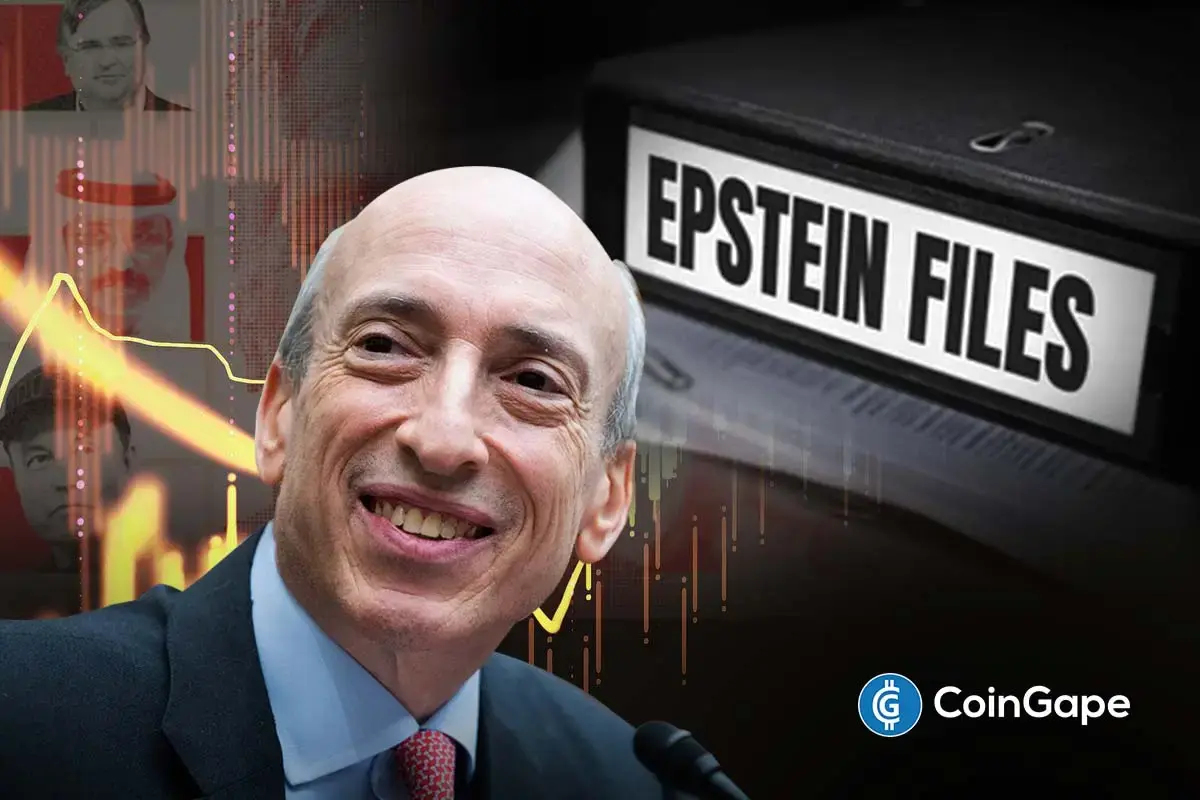SEC Chair Gary Gensler Firmly Opposes FIT21 Act, Here’s All

Highlights
- SEC Chair Gary Gensler argues that the FIT21 Act would create significant regulatory gaps, undermining decades of financial oversight precedent.
- Gensler warns that the act would hinder the SEC's ability to protect investors by allowing crypto firms to self-certify as decentralized, avoiding scrutiny.
- He stressed that the act could potentially enable fraudulent schemes to bypass securities laws.
Gary Gensler, U.S. Securities and Exchange Commission (SEC) Chair in a recent statement has expressed strong opposition to the Financial Innovation and Technology for the 21st Century Act, also known as the FIT21 Act. In the statement released Wednesday via key sources, Gensler articulated his concerns that the act would create significant regulatory gaps and undermine longstanding precedents regarding the oversight of investment contracts.
Gensler’s Strong Opposition & Risks Highlighted
Gary Gensler argued that this could put both investors and capital markets at substantial risk. “The FIT21 Act would create new regulatory gaps and undermine decades of precedent regarding the oversight of investment contracts, putting investors and capital markets at immeasurable risk,” Gensler said in his statement. A post on X by Alexander Grieve has revealed key details of his buttressed points.
His most stressed argument against the FIT21 Act centers on the classification of crypto assets as investment contracts. He believes that the act, known as H.R. 4763, would remove these assets from the SEC’s oversight, thereby hindering efforts to protect investors. Gensler highlighted that the act could enable crypto firms to self-certify their investments and products as “decentralized” and classify them under a special category of “digital commodities.”
This self-certification process would severely limit the SEC’s ability to challenge these classifications due to resource constraints. “The self-certification process risks investor protection not just in the crypto space; it could undermine the broader $100 trillion capital markets by providing a path for those trying to escape robust disclosures, prohibitions preventing the loss and theft of customer funds, enforcement by the SEC, and private rights of action for investors in the federal courts,” Gensler emphasized.
Also Read: BlackRock Bitcoin ETF Grabs Spotlight With $290M Inflow, Outshines Rivals
Concerns Over Market Regulation and Potential Fraud
Furthermore, Gensler voiced concerns that the FIT21 Act could potentially allow bad actors to exploit the regulatory gaps created by the bill. He warned that perpetrators of fraudulent schemes such as pump-and-dump and penny stock schemes might label their activities as crypto investment contracts or self-certify their systems as decentralized to evade securities laws.
“What if perpetrators of pump and dump schemes and penny stock pushers contend that they’re outside of the securities laws by labeling themselves as crypto investment contracts or self-certifying that they are decentralized systems?” Gensler questioned.
Additionally, he criticized the bill for excluding crypto trading platforms from the definition of an exchange and eliminating historically tested frameworks such as the Howey test, which he believes would further expose investors to risk.
Also Read: Former FTX Exec. Ryan Salame To Face 7 Yrs Sentencing, Here’s All
Play 10,000+ Casino Games at BC Game with Ease
- Instant Deposits And Withdrawals
- Crypto Casino And Sports Betting
- Exclusive Bonuses And Rewards

- Core Scientific Sells 1,900 BTC as Bitcoin Miner Pivots to AI, CORZ Stock Dips
- Bitcoin News: VanEck CEO Projects Gradual BTC Rally in 2026 as ETFs Sees $458M Inflows
- Bitcoin, Gold Slip as Donald Trump Says “Unlimited Munition Stockpiles” for US-Iran War
- Crypto Prices Today: BTC, ETH, XRP Prices Surge Despite Iran’s Strait of Hormuz Closure
- Nasdaq Brings Prediction Markets to Wall Street with New SEC Filing
- Bitcoin Price Prediction as US-Iran War Enters 4th Consecutive Day
- Top 5 Historical Reasons Dogecoin Price Is Not Rising
- Pi Coin Price Prediction for March 2026 Amid Network Upgrade, KYC Boost, Rewards Distribution
- Gold Price Nears ATH; Silver Eyes $100 Breakout on Us- Iran War
- Bitcoin And XRP Price As US Kills Iran Supreme Leader- Is A Crypto Crash Ahead?
- Gold Price Prediction 2026: Analysts Expect Gold to Reach $6,300 This Year

 Buy $GGs
Buy $GGs

















